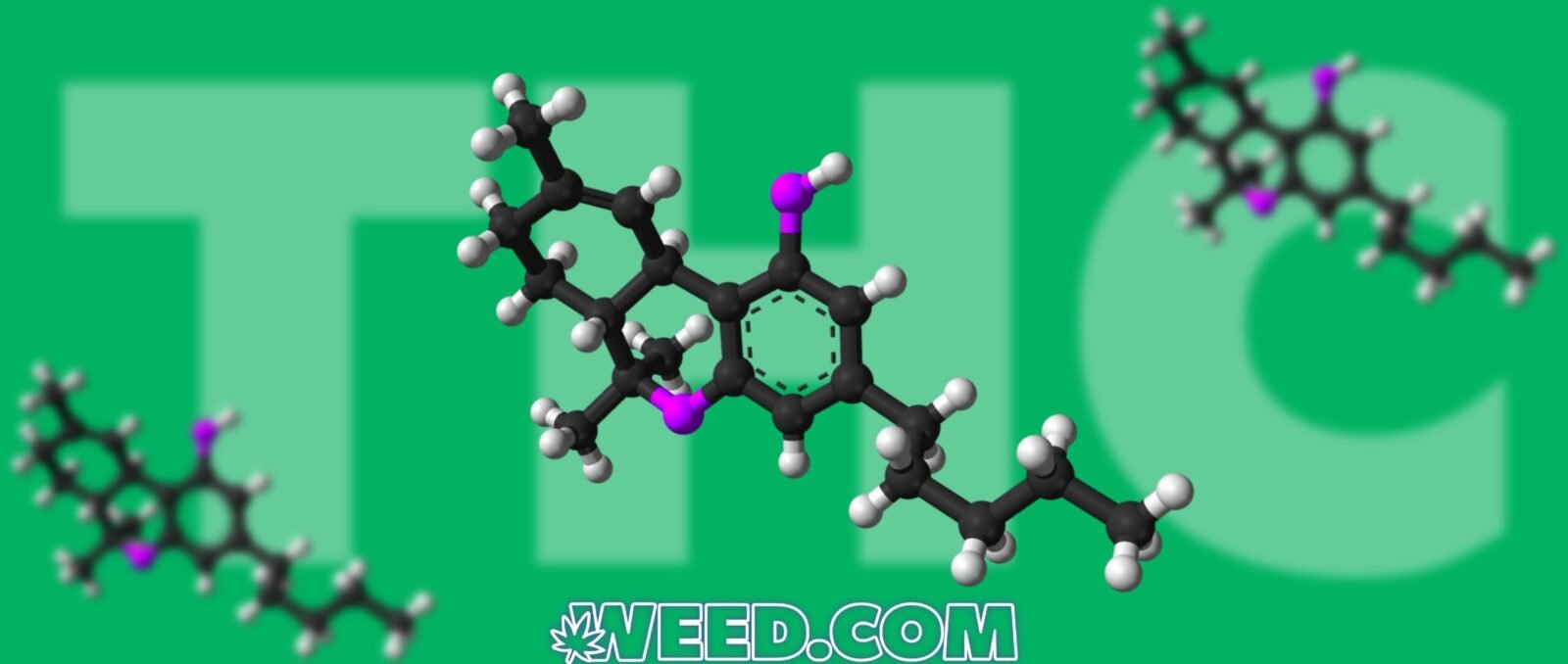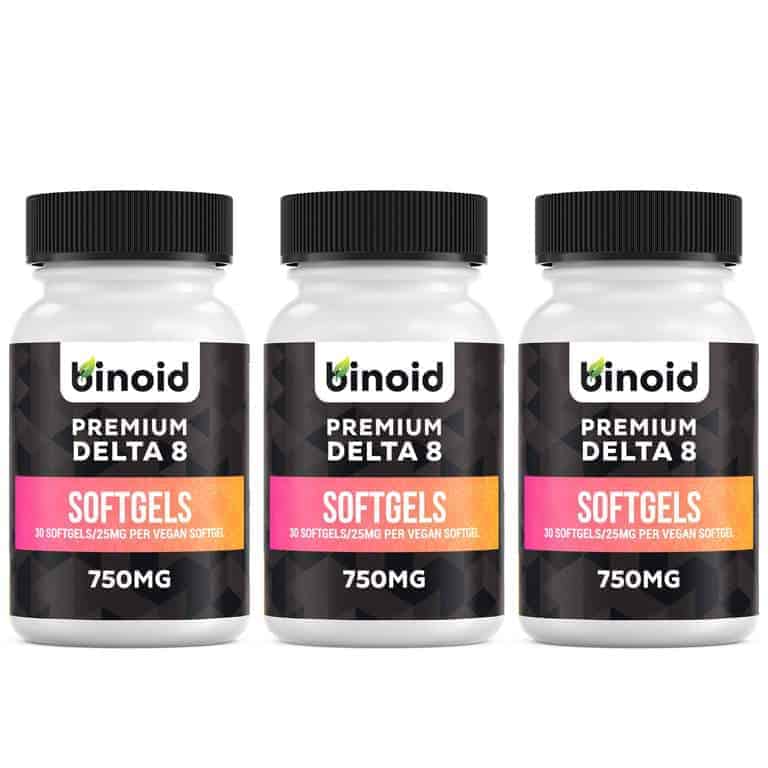
Understanding THC: What You Need to Know
In this comprehensive exploration, we will delve into the intricate world of THC (tetrahydrocannabinol), shedding light on its chemical composition, interactions within the body, therapeutic applications, recreational usage, legal standing, potential risks, ongoing research, and dispelling common misconceptions. By dissecting these various dimensions, we aim to provide a holistic understanding of THC and its implications.
This post is intended as information and for general knowledge only. It is not a substitute for medical advice, diagnosis, or treatment. It is recommended that you talk to a healthcare professional about this before introducing cannabinoids into your daily routine (especially if you have been diagnosed with any medical conditions or are under any medication). It is not recommended to drive or operate any machinery when using cannabis- or hemp-derived products. Use responsibly!
What is THC
Definition and Chemical Structure
THC is a psychoactive compound found in the cannabis plant. Its chemical structure consists of a cyclic arrangement of atoms, conferring its distinctive properties. Within the cannabis plant, THC content can vary widely based on factors like strain and cultivation methods.
Interaction with the Endocannabinoid System
One of THC’s remarkable aspects is its interaction with the endocannabinoid system. This complex network of receptors, enzymes, and endocannabinoids plays a crucial role in regulating various physiological processes such as mood, appetite, pain perception, and immune response. THC binds primarily to CB1 receptors in the brain, influencing the release of neurotransmitters and leading to its psychoactive effects.
Psychoactive Effects
Upon binding to CB1 receptors, THC exerts psychoactive effects that alter perception, mood, and cognitive function. These effects include a sense of euphoria, relaxation, and altered sensory experiences. However, it’s important to note that excessive THC consumption can lead to potential cognitive impairment and impaired motor skills.
The Role of THC in Cannabis
Cannabinoid Diversity

The cannabis plant is a treasure trove of various cannabinoids, each with its unique properties. THC and CBD (cannabidiol) are the most well-known and extensively studied cannabinoids. While THC is responsible for the “high” commonly associated with marijuana use, CBD is non-psychoactive and has garnered attention for its potential therapeutic benefits.
Primary Psychoactive Compound
THC takes the spotlight as the primary psychoactive compound in cannabis. This property has contributed to its recreational use throughout history, as people seek the euphoric effects it can induce. However, it’s worth noting that the use of THC for recreational purposes is regulated in many parts of the world due to its potential for abuse and negative health effects.
Medical Uses and Benefits of THC
Pain Management
One of the most well-documented medical applications of THC is its role in pain management. For individuals dealing with chronic pain, neuropathic pain, or pain associated with conditions like arthritis, THC’s analgesic properties can provide much-needed relief. This potential has led to the use of medical marijuana or medical cannabis, where THC levels are carefully controlled to balance pain relief and psychoactive effects.
Appetite Stimulation
THC’s ability to stimulate appetite has been beneficial for individuals with medical conditions that result in reduced appetite or weight loss. In cases of cancer patients undergoing chemotherapy, THC’s capacity to alleviate nausea and increase appetite has a positive impact on their overall well-being.
Nausea and Vomiting Relief
The National Cancer Institute recognizes THC’s potential to alleviate chemotherapy-induced nausea and vomiting, making it a valuable addition to the arsenal of medications used to manage the side effects of cancer treatments.
Muscle Spasm Control
In conditions like multiple sclerosis, where muscle spasms can be debilitating, THC’s muscle relaxant effects offer relief from the discomfort and pain associated with these spasms. This has led some patients to explore medical marijuana or cannabis products containing controlled levels of THC.
Recreational Use of THC
Euphoric and Relaxing Effects
The psychoactive effects of THC contribute to its recreational use. Users often seek the altered sensory perception, mood elevation, and relaxation that THC can induce. However, responsible consumption is essential to prevent adverse effects and potential dependence.
Sociocultural Factors
Recreational cannabis consumption has deep sociocultural roots. It has been used for relaxation, creativity, spiritual experiences, and even communal bonding. Different societies and communities have integrated cannabis use into their traditions and rituals.
Responsible Consumption
Understanding the concept of dosage is crucial when it comes to recreational THC use. The potency of the cannabis strain and an individual’s tolerance level play vital roles in determining the effects of THC consumption. Overindulgence can lead to discomfort, anxiety, and even more severe effects.
Legal Status of THC
Global Legal Landscape
Regulations surrounding THC vary widely across the globe. While some countries have embraced medical marijuana or even recreational cannabis use, others maintain strict prohibition on the compound. These differences contribute to a complex international legal landscape.
Jurisdictional Differences
Even within countries, such as the United States, THC’s legal status can be a patchwork of regulations. Federal laws may conflict with state laws, leading to disparities in enforcement and accessibility.
Impact of Legalization
The legalization of THC has far-reaching implications. It affects economies, public health, criminal justice systems, and more. The balance between potential benefits and risks has led to ongoing debates and discussions.
Potential Risks and Side Effects
Short-Term Cognitive Impairments
It’s important to acknowledge that THC consumption can lead to short-term cognitive impairments. Memory and concentration issues can arise, particularly at higher doses, affecting an individual’s ability to perform tasks that require focus and attention.
Adolescent Developmental Risks
Research suggests that the developing adolescent brain is particularly vulnerable to the effects of THC. Early and frequent marijuana use during this stage of life could lead to long-lasting cognitive and psychological challenges.
Cannabis Use Disorder
While not everyone who uses THC will develop a substance use disorder, there is a potential risk. Some individuals may develop problematic patterns of cannabis use, experiencing withdrawal symptoms and struggling to cutdown or quit.
Drug Interactions
THC can interact with other medications a person may be taking. This can potentially alter the effectiveness of these medications or lead to unexpected adverse effects. It’s essential for healthcare professionals to be aware of these interactions when treating patients.
THC Research and Current Developments
Therapeutic Potential
Ongoing research continues to uncover THC’s potential therapeutic applications beyond pain management and appetite stimulation. Studies are exploring its role in addressing conditions like PTSD, epilepsy, and various neurological disorders.
Delivery Methods
Advancements in technology have expanded the ways THC can be consumed. Smoking and vaping are traditional methods, but edibles, tinctures, and topical applications are gaining popularity. Each method influences the onset and duration of THC’s effects.
CBD-THC Interplay
The interplay between THC and CBD is a topic of significant interest. These two cannabinoids have distinct effects on the endocannabinoid system. When used together, they can exhibit synergistic effects, potentially enhancing or modulating each other’s therapeutic benefits.
Addressing Common Misconceptions
THC vs. CBD
Distinguishing between THC and CBD is vital for understanding their effects and potential applications. While THC is psychoactive and responsible for the “high,” CBD is non-psychoactive and has garnered attention for its potential medical uses.
Overdosing Myth
Contrary to some misconceptions, fatal overdose from THC is extremely unlikely. However, high doses of THC can lead to discomfort, anxiety, and paranoia. Responsible consumption is crucial to avoid such adverse experiences.
Medical vs. Recreational Use
Understanding the distinction between using THC under medical supervision and for recreational purposes is essential. Medical cannabis products are carefully formulated and dosed to provide therapeutic benefits while minimizing potential risks.
Conclusion
By traversing the intricate realms of THC, from its molecular structure to its effects on health and society, we’ve fostered a comprehensive grasp of this influential compound. Armed with knowledge, individuals can make informed choices about THC’s role in their lives, embracing its potential benefits while mindful of its potential risks and legal considerations. As research continues and societal attitudes evolve, the landscape of THC’s uses and implications will undoubtedly continue to unfold.













